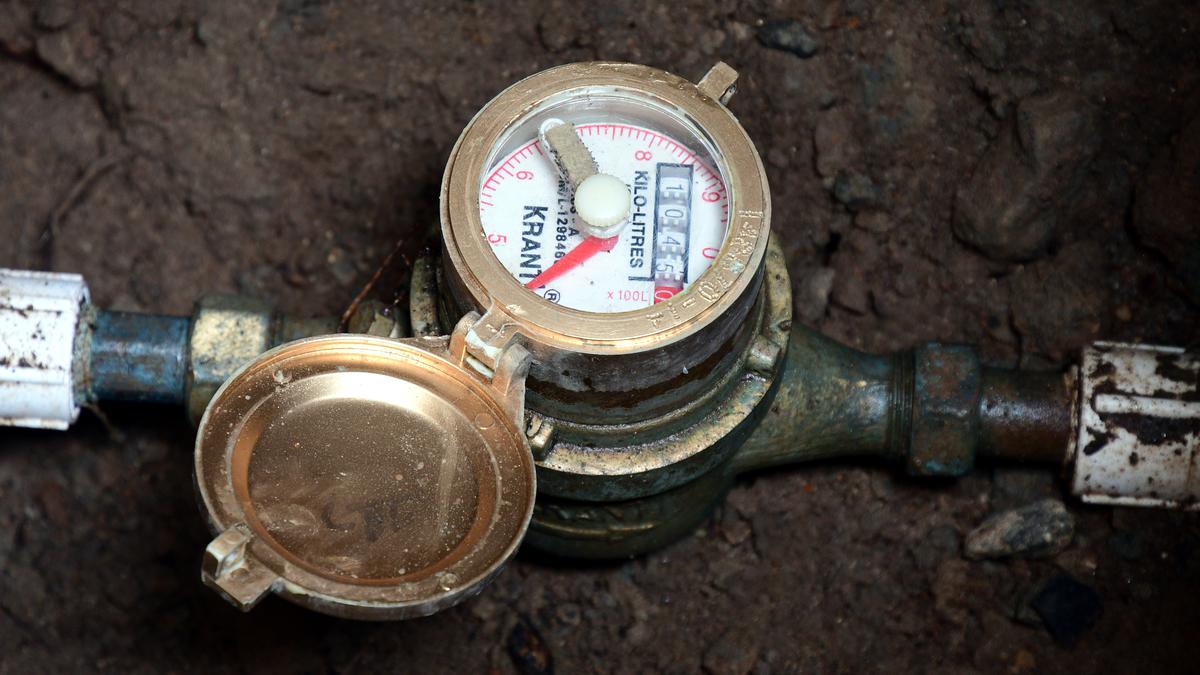
Tiruchi Corporation to expedite installation of smart meters for non-domestic drinking water connections
The Hindu
Tiruchi Corp. plans to install smart meters in select wards to calculate water charges based on actual consumption. A Salem-based engineering firm has been roped in to fit the meters. The project will help monitor and regulate water consumption, and increase revenue by charging based on actual usage.
Tiruchi Corporation has planned to expedite the pilot project to install smart meters for non-domestic drinking water connections in select wards to calculate water charges based on actual consumption.
Earlier this year, the Corporation planned to install smart meters to assess the non-domestic drinking water connections and passed a resolution in February to implement it on a pilot basis in 13 wards in Zone V (Ko Abhishekapuram). The Corporation called for tenders to execute the pilot project in May and allocated a sum of ₹51 lakh from its general fund. A Salem-based engineering firm was roped in to fit smart meters.
A senior Corporation official says the firm will remove all conventional meters in non-domestic drinking water connections in Zone V and replace them with digital meters. The firm will also develop dedicated software and take care of maintenance of the smart meters for a year beyond the prescribed warranty period.
Periodic meetings have been organised with all stakeholders to review the implementation, and instructions given to expedite and complete the work soon. After completion of the pilot project, steps will be taken to extend it to all the zones in the next phase.
There are more than 1.2 lakh drinking water connections in the city for which the civic body levies water charges with different tariffs for domestic and non-domestic consumers. At present, water charges are calculated based on the readings taken manually by Corporation workers. The proposal to digitise water metering has been felt because of certain flaws in measuring the quantity of water consumed and the shortage of workforce involved in taking readings manually.
Digitising will help the civic body to monitor and regulate the consumption of drinking water through its Supervisory Control and Data Acquisition (SCADA) control room. This will also help the administration to levy water charges based on the actual consumption rather than charging a flat rate and is likely to increase its revenue.

“Writing, in general, is a very solitary process,” says Yauvanika Chopra, Associate Director at The New India Foundation (NIF), which, earlier this year, announced the 12th edition of its NIF Book Fellowships for research and scholarship about Indian history after Independence. While authors, in general, are built for it, it can still get very lonely, says Chopra, pointing out that the fellowship’s community support is as valuable as the monetary benefits it offers. “There is a solid community of NIF fellows, trustees, language experts, jury members, all of whom are incredibly competent,” she says. “They really help make authors feel supported from manuscript to publication, so you never feel like you’re struggling through isolation.”

Several principals of government and private schools in Delhi on Tuesday said the Directorate of Education (DoE) circular from a day earlier, directing schools to conduct classes in ‘hybrid’ mode, had caused confusion regarding day-to-day operations as they did not know how many students would return to school from Wednesday and how would teachers instruct in two modes — online and in person — at once. The DoE circular on Monday had also stated that the option to “exercise online mode of education, wherever available, shall vest with the students and their guardians”. Several schoolteachers also expressed confusion regarding the DoE order. A government schoolteacher said he was unsure of how to cope with the resumption of physical classes, given that the order directing government offices to ensure that 50% of the employees work from home is still in place. On Monday, the Commission for Air Quality Management in the National Capital Region and Adjoining Areas (CAQM) had, on the orders of the Supreme Court, directed schools in Delhi-NCR to shift classes to the hybrid mode, following which the DoE had issued the circular. The court had urged the Centre’s pollution watchdog to consider restarting physical classes due to many students missing out on the mid-day meals and lacking the necessary means to attend classes online. The CAQM had, on November 20, asked schools in Delhi-NCR to shift to the online mode of teaching.









